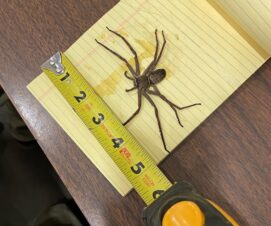Washington — IAPMO Senior Director of Special Programs Pete DeMarco implored a U.S. House of Representatives subcommittee to support water-efficiency research efforts and to
spare the U.S. EPA’s WaterSense program from potential funding cuts.
Speaking before the U.S. House Committee on Appropriations Subcommittee on Interior, Environment andvRelated Agencies, DeMarco addressed the critically important issues of water use, water efficiency and water
conservation, and voiced support for such key programs under the subcommittee’s jurisdiction as WaterSense. For a full transcript of DeMarco’s testimony, visit http://goo.gl/nDC1d.
DeMarco provided an overview of research efforts such as the Plumbing Efficiency Research Coalition (PERC) – of which IAPMO was a founding member – including the release of its first research report, The Drainline
Transport of Solid Waste in Buildings. While the research was conducted with funding obtained entirely from the private sector, DeMarco pointed out that it took two years to obtain the relatively small amount of money
necessary to perform it. While the research has been well received so far and future research will be beneficial when it comes to informing the industry about the consequences of reduced flows in building drains, the
federal government needs to do more to support such research efforts, he said.
“Therefore, we encourage the committee to have the Department of Interior and the EPA support these research efforts in terms of both funding dollars and toward supplying technical resources,” DeMarco said.
In speaking out against potential cuts to WaterSense, DeMarco pointed to President Obama’s newly released Fiscal Year (FY) 2014 budget, which included nearly $300 million in cuts to the EPA over FY 2012.
“We all understand the budget constraints facing our country, but we’d encourage the subcommittee to recommend that the EPA not relay these cuts to the critically important and valuable WaterSense program,” he
said. “According to the EPA, WaterSense has to date helped consumers save a cumulative 287 billion gallons of valuable, energy-laden potable water and more than $4.7 billion in water and energy bills.”
DeMarco also encouraged the Bureau of Indian Affairs to seek accredited training programs that would bring much-needed skills to remote Indian reservations – skills that will remain within that community to benefit all.
Finally, DeMarco called the subcommittee’s attention to National Institute of Building Sciences (NIBS) and American National Standards Institute (ANSI) programs and encouraged members to review the efforts while
determining the nation’s budgetary priorities.
“While I recognize the ingenuity and innovation that our country has demonstrated time and time again over the years, the fact remains that we will never be able to find a replacement for this precious resource, and the
time to address our nation’s looming water-related concerns is now, as these problems will only be compounded as our nation grows,” he concluded.




Join the conversation: